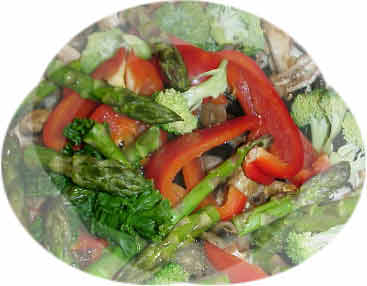|
Back To The Foodture
Try this experiment - junk all the ready meals and snack foods, decide to eat meat only two or three times a week, and buy the best of everything. You will save a fortune. One of the most fascinating things about Channel 4's 1940s House was what happened to Mrs Hymer after the series ended. She did not go back to supermarket shopping and she no longer bought convenience foods. The result was a saving of 70 pounds ($NZ220) a week for a family of five. The fact is that women are mostly still in charge of shopping and cooking. This gives us huge power. We can change food production in Britain faster than governments or legislation. What we demand will determine what supermarkets buy. Something has to happen - and soon. On the back of BSE comes foot and mouth. Not long ago it was E coli and salmonella. Farming is not a business in which costs can be cut indefinitely. The real price of cheap food is a sickly, obese population and a chemically maintained countryside where disease flourishes, while habitat and species diversity is destroyed. The bucket-loads of antibiotics fed to animals have not proved protection against the unnatural way they are farmed. Nick Brown says he wants to look again at the effects of intensive farming. The big issue is going to be cheap food. Ask yourself this: why will you pay 50p for a chocolate bar and expect six eggs for the same price? Food has become something we seem to feel should not cost money. To keep prices low and margins high, supermarkets import half of what we eat. I live in the Cotswolds, next door Hereford produces wonderful beef. My local Tesco only sells organic beef from Argentina. How does that help British farmers? How does that support a rural economy? It is true that beef ranched abroad can be produced more cheaply than anything we can manage in Britain - or so it seems. Earth scientist James Lovelock has worked out the true cost of a rainforest hamburger. He arrived at this figure by ruling out all the economically invisible benefits rainforests provide - habitat, livelihood for indigenous people, etc - and focused on the fact that rainforests act as giant cooling systems for the whole planet. He then calculated the cost of providing this service technologically. He divided that cost per hectare of forest, averaged the number of cattle ranched on each cleared hectare, then worked out how many hamburgers could be got from each animal. So next time you pay 99p, remember the $65 the planet has paid for you. The implications of the way we eat will be problems our children will have to solve. Seventy-five per cent of the earth's fertile land is farmed. I do not believe more chemicals, drugs and GM crops are the answer. The answer starts with a quiet revolution - what we are going to eat and how we are going to pay for it. We will have to pay, if not out of our pockets, then out of our bodies. We will pay with our health and with the health of the planet. Purse power is not just a middle-class solution, but as the middle classes are better paid and better informed, they are in a strong position to drive the changes in shopping habits that are the only thing that will force supermarkets to alter their destructive buying policies. When Tony Blair accused supermarkets of holding farmers in an armlock', he was right. The supermarkets in turn blame the consumer - forgetting the 1960s advertising adage: The consumer is not a moron, she is your wife.' Now she has her own bank account. Go shop.
|

